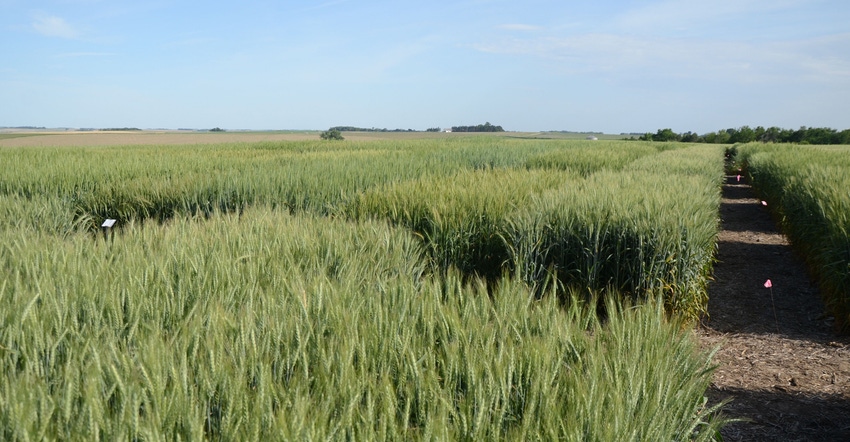June 19, 2017

Note: you can listen to my conversation with Nathan Mueller by clicking on the YouTube link embedded in this article.
This June, Nebraska Extension kicked off a series of winter wheat field days and plot tours across Nebraska. For the first time in 35 years, one of these plot trials was held in Washington County. It was also the first time in 35 years there has been a plot trial north of the Platte River in eastern Nebraska.
However, Nathan Mueller, Nebraska Extension cropping systems educator in Dodge and Washington counties, notes there is an increased interest in growing wheat in eastern Nebraska. The field day drew interested growers from as far away as Iowa, and there are reasons to grow wheat beyond the market value.
"If you just look at the price of wheat and basis, even though the basis is actually pretty good here in Fremont for winter wheat, it's hard to pencil it out," Mueller says. "So there's a lot of ways to add additional revenue, and there's a lot of benefits we often don't think about why some small acreages of winter wheat on our farm might be helpful."
A big opportunity for wheat growers is an additional window to apply manure — and to be able to apply manure at a time when there's less risk of soil compaction. That's especially an opportunity in the Fremont area, where in addition to swine, dairy and beef, producers will soon have an opportunity with poultry litter, thanks to Costco's new state-of-the-art poultry processing facility.
"The biggest concern we have when we have a lot of manure we need to get land-applied is if we have a wet fall followed by a wet spring, and you're having it commercially applied for you. The amount of days might become a barrier to try being on those fields when they're not wet," says Mueller. "Growing wheat, it might be a 20- or 30-acre field of winter wheat. We're pretty confident we're going to have some dry soils in July, August and September. That can be worth a lot in terms of having more flexibility in our manure management plans."
Manure also helps add organic matter to the system, contributing to the overall soil health package that winter wheat provides. Meanwhile, winter wheat also serves as a way to mitigate erosion during heavy rainfall months in spring.
"That fibrous root system near the surface, over the long term, they've shown that really does help with soil aggregation, which is going to help with soil structure and infiltration. Growing more months of the year, having a living root system is really going to help microbial activity," Mueller adds. "Between manure and wheat, I think those two stacked on top of each other really provide a lot of benefit."
You May Also Like




